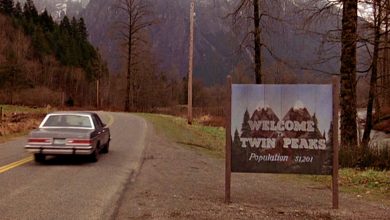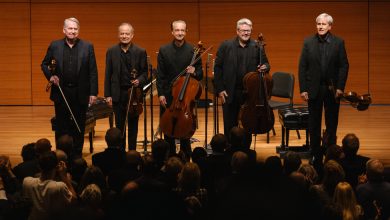Maggy Hurchalla, Formidable Florida Environmentalist, Dies at 81

The classic Maggy Hurchalla introduction would go something like this: “Come to my house,” she’d say. “We’ll go kayaking.”
Then, for several hours, she would paddle circles around people half her age along Florida’s Indian River, through a mangrove canopy and to a barrier island beach she had nicknamed the “End of the World” — her own corner of the lush Old Florida she had fought so hard to protect.
Ms. Hurchalla, a zestful and adventuresome environmentalist who carved a reputation independent from her trailblazing sister, Janet Reno, the first female United States Attorney General, died on Feb. 19 at her home in Stuart, Fla. She was 81.
Her son George said the cause was likely cardiac arrest. She had been recovering from hip surgery.
For over two decades as a commissioner in Martin County, on Florida’s Treasure Coast, Ms. Hurchalla crusaded for strict rules to hold off eager developers and prevent the unbridled sprawl that had proliferated from Miami to West Palm Beach. Her efforts resulted in four-story height limits for buildings, the preservation of wetlands and a community that grew slowly and deliberately.
In recent years, as she continued her environmental work, she lost a big legal case against a rock-mining company, resulting in a $4.4 million judgment against her.
Out of office, Ms. Hurchalla remained abreast of all the goings-on around town. Her forceful, jovial personality drew like-minded activists whom she could spur into action with a single email.
“I spend too much time at the computer, trying to save the world,” she told a reporter in 2019.
She spent the rest of her time outdoors. Often, she was kayaking, a pursuit she had shared with Ms. Reno, who died in 2016. (Ms. Hurchalla called her Janny.)
When Ms. Reno served in the Clinton administration, the tall and lanky sisters liked to paddle along the Potomac River. Ms. Hurchalla got a kick out of describing how some members of Ms. Reno’s security detail struggled to keep up.
Her most public environmental fight began in 2013, when Lake Point Restoration, a company with a limestone mining operation in Martin County, sued her for contract interference. She had sent emails urging county commissioners to back out of a deal with Lake Point that she feared would destroy wetlands and cause other harm.
In court, Ms. Hurchalla argued that she had exercised her First Amendment rights. But Lake Point countered that she had improperly instructed commissioners and made false claims that cost the company money. Lake Point offered to drop the case if she publicly apologized. She refused.
In 2018, a jury ruled against Ms. Hurchalla — and decided that she should pay Lake Point $4.4 million in damages. She did not have the money. Sheriff’s deputies seized two kayaks and a 2004 Toyota Camry that used to belong to her sister, before Lake Point returned them. Last year, the U.S. Supreme Court denied Ms. Hurchalla’s request to hear her appeal in the case.
“I’m not at all sorry that I have spent the last seven years fighting” for the First Amendment, she said in an email to The New York Times following the high court’s decision. “Meanwhile, I’m going kayaking and I’m going to keep on saying what I think.”
Margaret Sloan Reno grew up the third of four children in a rural Miami-Dade County homestead on the edge of the Everglades, with backyard peacocks, raccoons and donkeys. The Miami Herald paid to connect the property to a phone line so that her father, Henry Olaf Reno, a police reporter, could call police departments every morning, hunting for a scoop.
He was tickled when his wife, Jane Wood Reno, a features writer for the rival Miami News, beat him on a story. Ms. Wood Reno, a naturalist, built most of the homestead by hand, despite having no background in construction.
At Swarthmore College, Maggy studied psychology and met Jim Hurchalla, an engineer. In 1968, they moved to the Rocky Point neighborhood of Stuart and built a home on a $5,000 lot on the banks of the Indian River.
Mr. Hurchalla and the couple’s four children — James, Robert, Jane and George — survive her, as do four grandchildren.
Once, Ms. Hurchalla and her allies celebrated the passage of a bond referendum that led to the creation of the county’s public beach system with a late-night skinny dip in the ocean.
People around town found out and, in her next election, “passed around smear sheets saying she was a woman of low morals,” George Hurchalla recalled. Her family thought it was a hoot.
Ms. Hurchalla’s voice so resembled her sister’s that she helped voice Ms. Reno’s part in a 2013 episode of “The Simpsons” in which Bart is falsely accused of pulling an Easter prank and must appear before a judge. By then, the former attorney general’s Parkinson’s disease was so advanced that she could record short lines but not long paragraphs.
Since 1992, Ms. Hurchalla had suffered from an autoimmune disorder that required monthly intravenous transfusions of antibodies. She had also battled breast cancer.
After she learned about a developer’s plan to buy 650 acres on Hutchinson Island, she became an activist. The gated residential community was still built. But she ran for office and was elected as Martin County’s first female commissioner two years later.
George Hurchalla realized while writing a book about his grandmother’s extraordinary life that she had passed along her passions to Ms. Hurchalla, and then to him.
“We had directly inherited that fearless sense of adventure and just love of all places Florida,” he said. “The Everglades. The swamps. The rivers. The cypresses. Everything.”
Before she died, Ms. Hurchalla had planned to attend a public hearing to oppose a change to the county’s comprehensive plan that would make it easier to build upscale projects outside of the county’s urban development boundaries, said Eve Samples, the executive director of Friends of the Everglades.
Last week, her friends showed up at the meeting without her, rallying outside while holding kayak paddles in her honor.





